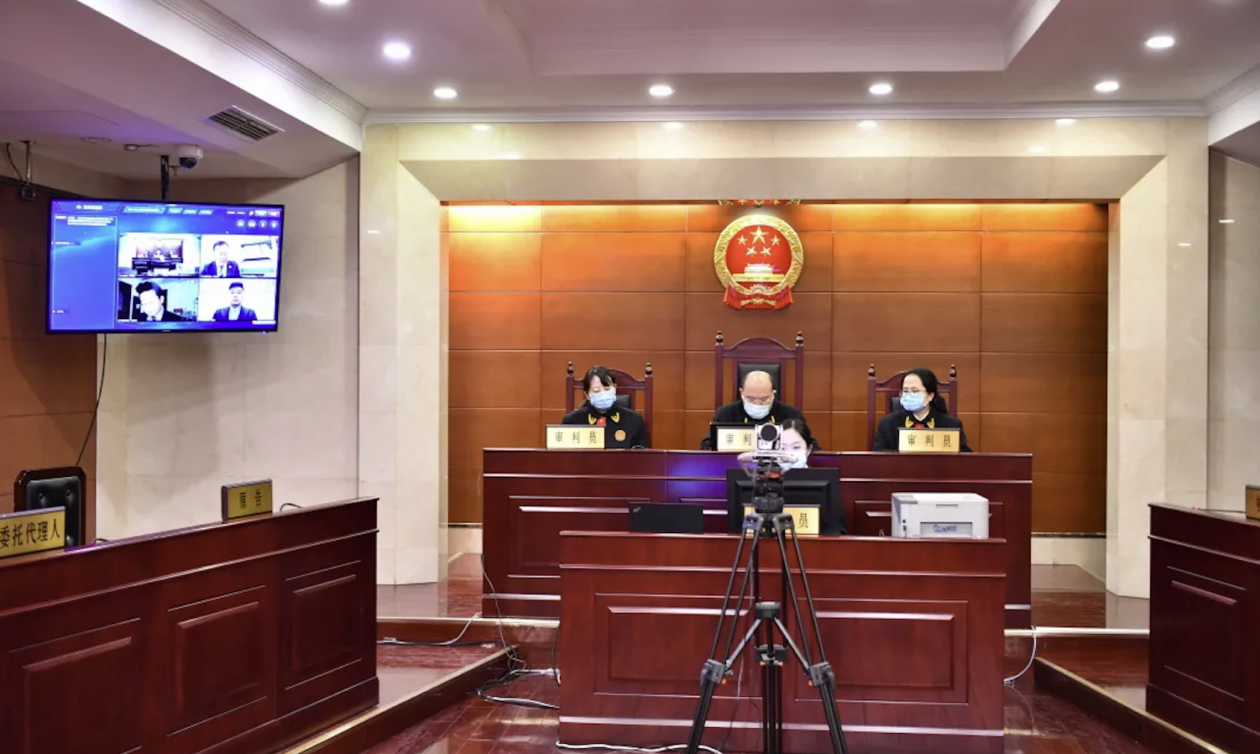In a contract dispute case, a Beijing court in Chaoyang district on Wednesday ruled a legal arrangement for Bitcoin mining to be invalid, signaling how China’s legal system may view future crypto-related disputes.
Fast facts
- In May 2019, the plaintiff, Fengfu Jiuxin company, signed purchases and services contracts with blockchain technology company Zhongyan Zhichuang, with the latter agreeing to help buy and manage mining machines, according to a social media post published by the court. The plaintiff paid Zhongyan 10 million yuan (US$1.57 million) for the machines and management services, and Zhongyan later deployed the rigs in Southwest China’s Sichuan province.
- However, during the contract period, Zhongyan only gave Fengfu 18.3 BTC (about US$896,000) in returns, prompting Fengfu to file a lawsuit against Zhongyan asking for a compensation of 278.2 BTC (US$13.6 million).
- The court ruled on Wednesday that the relevant property rights surrounding the contracts should not be protected by the law and the agreements were invalid, as the plaintiff was aware of the risks associated with crypto mining and the government’s stance towards crypto activities but yet still signed the contracts to mine crypto.
- The court went on to say that it has sent the information about the case to the Sichuan Provincial Development and Reform Commission, suggesting the local authority to investigate the Bitcoin mining projects associated with the case.
- Until this year, China was one of the major cryptocurrency-producing countries in the world. But all that started to change this spring as one region after another — including Inner Mongolia and Xinjiang regions, as well as Qinghai, Yunnan, Sichuan, Hebei and Gansu provinces— imposed restrictions or outright bans on crypto mining.
- On Sept. 24, the National Development and Reform Commission (NDRC), the country’s top economic planner, jointly issued a notice with 10 other authorities to wipe out crypto mining nationwide.
- However, other crypto-related cases reveal nuances by the courts. A Minhang district court in Shanghai stated in August that it heard a case in which a plaintiff purchased Bitcoin mining machines from a defendant but later claimed the contract was invalid given the People’s Bank of China’s 2017 guidance that prohibited initial coin offerings and thus demanded a refund for the machines. The court ruled the deal to be valid and that although Bitcoin is not currency, it holds the attributes of a virtual commodity given its exchangeability, excludability and availability.
- The Minhang court ruling was in line with an earlier court decision. The Hangzhou Internet Court, begun in 2017 to hear internet-related cases, recognized Bitcoin in 2019 as legal virtual internet property that deserved to be treated like other assets.





